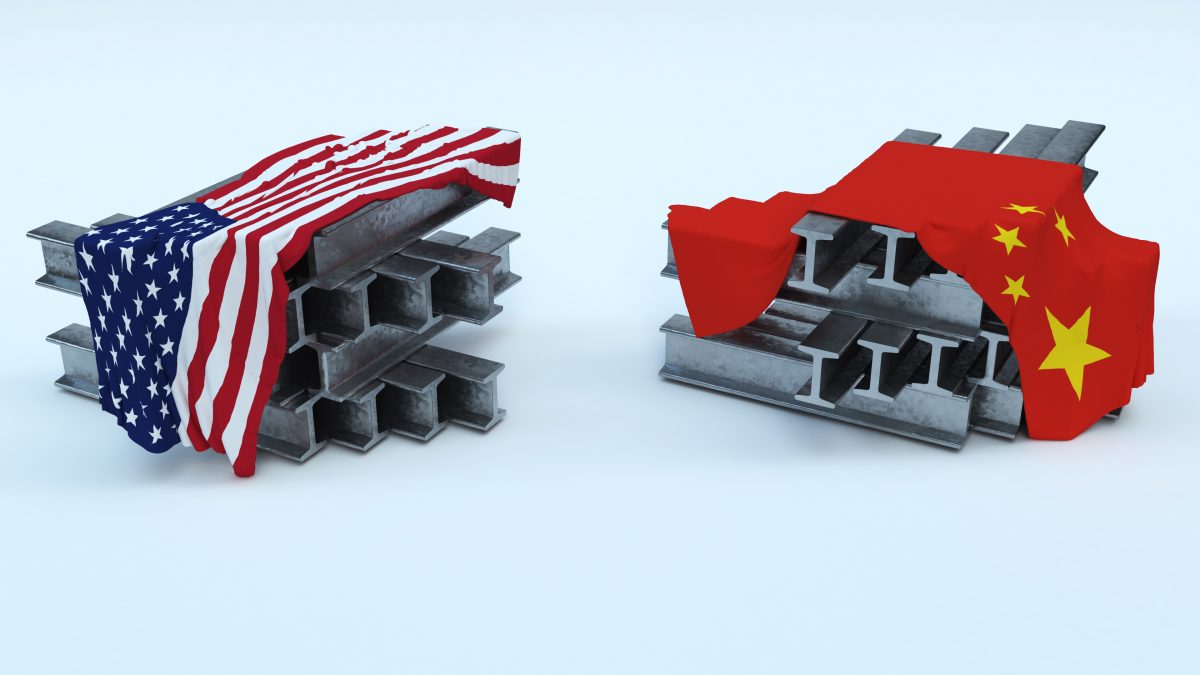The Winds of Geopolitical Change


3D Render of US Steel Import Tarrifs
Written by Joseph Hage, Executive Director of the American Lebanese Policy Institute, ALPI-PAC
President Xi of China has not wasted time in his efforts to build alliances with current or former USA allies.
China, with an economy second in size only to the US, is challenging America’s once unipolar dominance. In recent years, China has done a good job expanding its influence around the world economically. Its most recent actions include sponsoring a detente between Saudi Arabia and Iran. The visit of President Xi to Moscow shows the Chinese leadership on the geopolitical offence.
Reviewing the twelve points of the agreement it seems that Iran has given in to the conditions demanded by Saudi Royalty, by Prince Mohammad bin Salman in particular. The trial period of sixty days before re-establishing diplomatic relations or continuing these conversations seem like a warning to Iran’s Mullahs. Past experiences in the region have taught us to take Iran’s promises with question marks.
The distinction this time is the Chinese sponsorship. China is a main buyer of Iranian oil while sanctions are in place, and China is the main investor in Iran’s infrastructure in rebuilding a country abandoned by a regime which has wasted resources in interventions in Iraq, Yemen, Syria, and Lebanon.
The main question regarding this détente is: Can China afford to risk its prestige sponsoring such an agreement and then let the Ayatollahs and the Revolutionary Guards dictate the outcome? China has hit the jackpot with this deal, having access to Saudi Oil production and the opportunity to invest in the ambitious plans of MBS, the heir to throne. Will President Xi jeopardize this arrangement by allowing Iran to act dishonestly? China will not take NO for an answer from Iran. The pressure is rising on the Iranian regime both from China and internally following the recent protests against the Mullahs.
Iran has sixty days to show its sincerity on the deal. MBS will not budge on the conditions.
As for the visit of President Xi to Moscow, the USA has warned China against supplying Russia with lethal weapons. However, we are not expecting the Chinese to take the American warning into consideration, especially if they deem it strategically necessary to bind the defensive alliance with Russia, North Korea, and Iran, followed by an economic alliance that adds India, Brazil, and other nations to the mix.
China has an advantage over the USA with its geopolitical expansion. Governments that are “social democrats” when they are authoritarian, prefer alliances with partners who do not meddle in their internal affairs. China does not raise the issue of human or civil rights with any of its allies or adversaries. Russia supports authoritarian regimes around the world. Both countries put issues of human and civil rights at the bottom of their strategic concerns.
The priorities of the US administration and its European allies are “climate change” and “human rights” respectively.
Unfortunately, the West is not able to lift impoverished nations, from Central and South America, from Africa to east Asia, from undeveloped to developing or developed status. The West focuses on human rights, climate change, and other rights at the expense of economic development and education. This irritates rulers, and they feel threatened. Therefore, they find alliances with powerful authoritarian regimes like China or Russia a better bet to stay in power regardless of the cost for their nation. Hence, underdeveloped nations, without a road map to prosperity, will remain under the grasp of these nations. Sadly, some rulers of these impoverished nations have learned how to win elections democratically and stay in power forever.